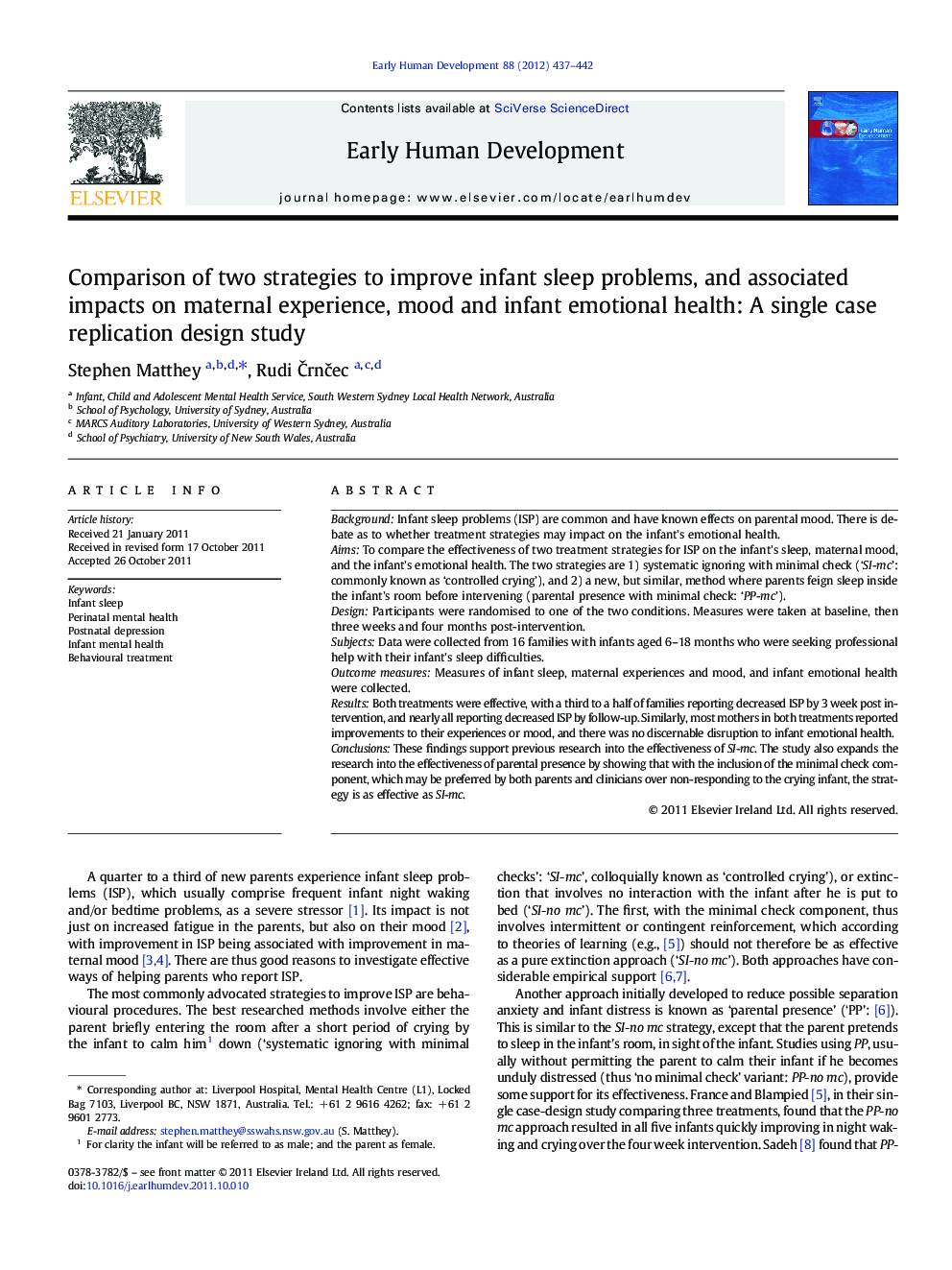| Article ID | Journal | Published Year | Pages | File Type |
|---|---|---|---|---|
| 6172082 | Early Human Development | 2012 | 6 Pages |
BackgroundInfant sleep problems (ISP) are common and have known effects on parental mood. There is debate as to whether treatment strategies may impact on the infant's emotional health.AimsTo compare the effectiveness of two treatment strategies for ISP on the infant's sleep, maternal mood, and the infant's emotional health. The two strategies are 1) systematic ignoring with minimal check ('SI-mc': commonly known as 'controlled crying'), and 2) a new, but similar, method where parents feign sleep inside the infant's room before intervening (parental presence with minimal check: 'PP-mc').DesignParticipants were randomised to one of the two conditions. Measures were taken at baseline, then three weeks and four months post-intervention.SubjectsData were collected from 16 families with infants aged 6-18Â months who were seeking professional help with their infant's sleep difficulties.Outcome measuresMeasures of infant sleep, maternal experiences and mood, and infant emotional health were collected.ResultsBoth treatments were effective, with a third to a half of families reporting decreased ISP by 3Â week post intervention, and nearly all reporting decreased ISP by follow-up. Similarly, most mothers in both treatments reported improvements to their experiences or mood, and there was no discernable disruption to infant emotional health.ConclusionsThese findings support previous research into the effectiveness of SI-mc. The study also expands the research into the effectiveness of parental presence by showing that with the inclusion of the minimal check component, which may be preferred by both parents and clinicians over non-responding to the crying infant, the strategy is as effective as SI-mc.
